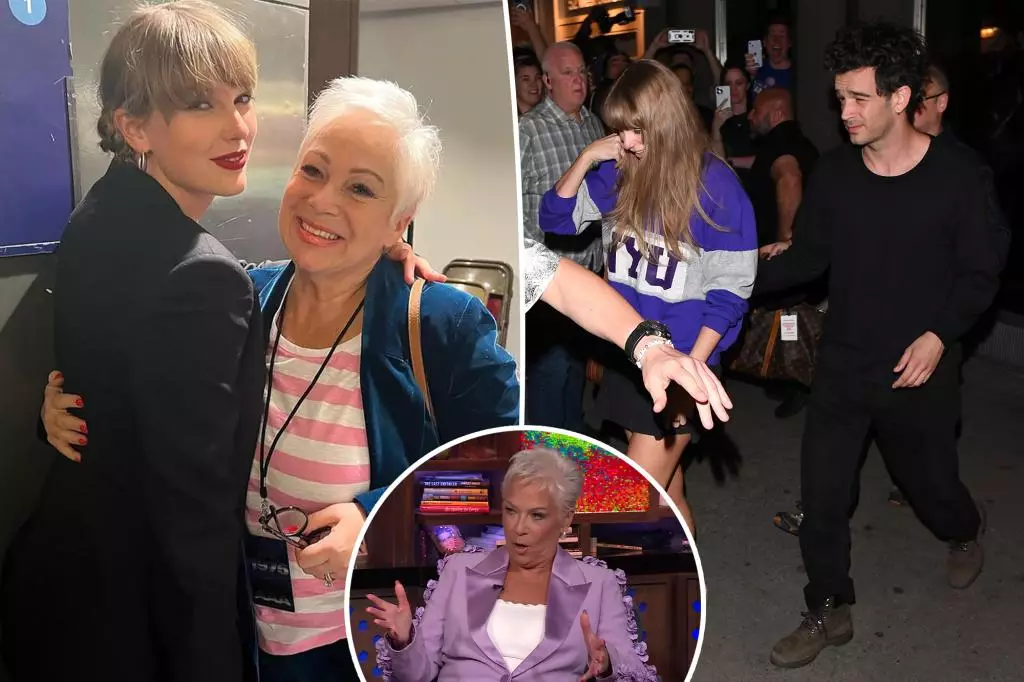In the glittering world of celebrity, public perception often masks the complex, often tumultuous, reality of personal relationships. The recent comments made by Denise Welch about Taylor Swift exemplify how personal histories can become weaponized in the court of public opinion. Welch, a seasoned British actress, chose to launch a subtle yet pointed critique of Swift, highlighting the undercurrents of rivalry and clout that run beneath celebrity interactions. Her comments reveal a pattern where familial stigmas and personal grudges intertwine with fame, creating a battleground where even innocuous questions can trigger sharp, behind-the-scenes rivalries.
This incident emphasizes that in Hollywood and beyond, personal relationships aren’t just private affairs—they are commodities that celebrities and their families often leverage publicly. Welch’s remark about not being her “mother-in-law” reveals a deeper commentary on perceived incompatibility, serving as an indirect shot at Swift. It underscores how, even in the realm of fame, personal preferences and judgments are weaponized to shape narratives—sometimes more impactful than any press release or social media post.
The Role of Media and Public Curiosity
Media outlets thrive on these personal conflicts because they provide ample material for sensationalism. Fans and onlookers obsess over the intricacies of celebrity romances, often forgetting that these relationships are underpinned by genuine human emotions, vulnerabilities, and insecurities. Welch’s pointed remarks, made on a popular TV show, demonstrate how the thirst for exclusives pushes celebrities’ personal lives into the spotlight, sometimes distorting the truth or inflaming tensions.
Her dismissive tone about Swift’s album and relationship reflects a broader tendency among celebrities and their families to maintain a veneer of civility publicly while harboring underlying resentments or judgments. For Welch, the comment about avoiding the “role I am glad I lost” is a subtle assertion of her boundary-setting—an act of self-preservation amid the invasive gaze of society and media. However, this also reveals how fragile these constructed public images are, often shattered by a careless word or a revealing interview.
The Power Dynamics of Romantic Turmoil
The brief romance between Swift and Healy encapsulates the volatile nature of celebrity relationships. Publicly, they appeared inseparable, yet insiders note they quickly dissolved due to incompatibility. Such relationships serve as a microcosm of the larger power struggles within the media-driven celebrity culture. When couples are scrutinized under relentless tabs, their personal lives become battlegrounds for ego, ambition, and image management.
Swift’s new album, rumored to contain references to her tumultuous affair with Healy, symbolizes how artists often channel personal pain into their creative work. Welch’s comments about Swift’s album underscore how these exchanges are interpreted and repurposed—used to fuel public narratives and stoke interest. The fact that Healy has moved on and is engaged again only highlights that in these stories, love, heartbreak, and rivalry are often fleeting chapters in the ongoing drama of celebrity existence.
In this spectacle, power isn’t just held by the stars—they are often manipulated by those close to them, whether family, exes, or media figures. The underlying message is clear: beneath the glitz and glamour, celebrity relationships are arenas of subtle control, rivalry, and survival, where every move is scrutinized and every word carries weight.

